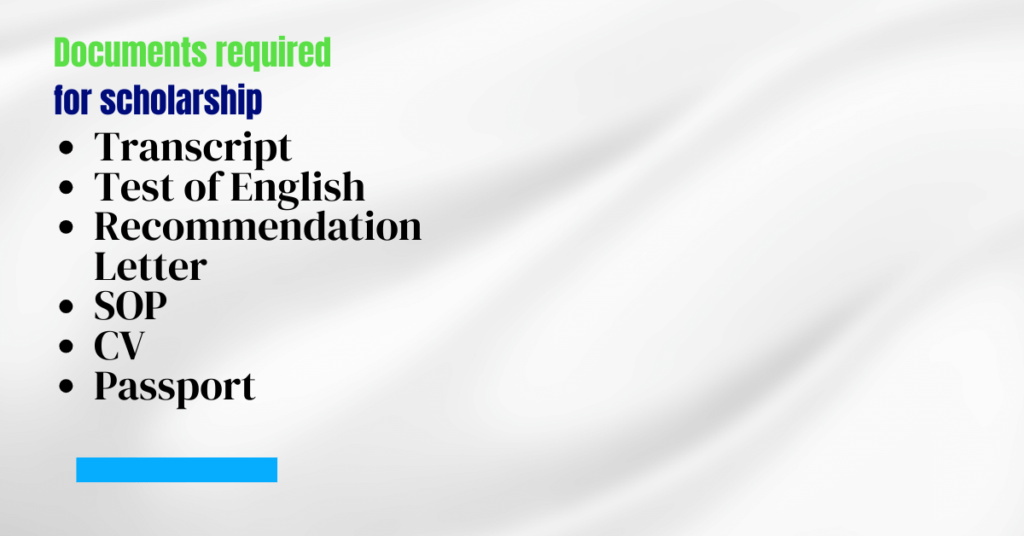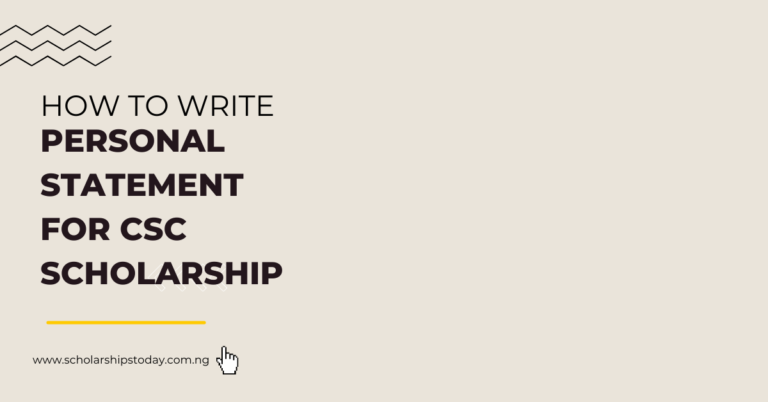The documents required for scholarship may vary depending on scholarship, but here I’ve explained the most common ones for you.
Listen, if you intend to apply for any scholarship, the very first step is to ensure that you’ve all documents that will be needed ready. Or at least know what will be required to know who or where to get them.
For instance, if you know from the documents I’ll discuss below that you need your birth certificate for international scholarships, it becomes easier to begin to find a way to get it if you don’t. And if you’ve, but it’s far away from you, you start now to make arrangements to get it delivered to you.
Most people become disorganized and frustrated when they realize, at the point of submitting their application, that the scholarship requires a specific document that is currently out of their reach—documents from specific individuals. The scholarship application deadline cannot be shifted simply because you don’t have access to certain essential documents.
Moreover, some of these documents required for scholarships take a long time to obtain, especially when coming from a nation where things don’t operate as efficiently as they should.
You wouldn’t want to be disorganized, as it could negatively impact your application process.
Having said that, depending on the scholarship, here are the documents required for scholarship applications: During scholarship application and after applications.
Documents Required for Scholarship
1. Scholarship application form:
This is the most important document; it’s the first document you’ll submit to the scholarship committee before any other. A scholarship application form is provided by the body awarding the scholarship for you to provide essential information about yourself. The information contained on this form is usually basic, covering details such as your biodata, contact information, academic history, and extracurricular activities.
For some people, this document becomes their greatest woe because they fill it with fake and unverifiable information.
For example, if the scholarship application requires applicants below a certain age—let’s say 30 years—but you’re 35, and you still proceed to fill the document. When asked to provide your birth certificate, it becomes a serious issue.
Or, if the scholarship is meant for individuals with specific qualifications and you don’t meet them but still complete the form, you’ll eventually discover that you cannot prove it.
It’s worth noting that a scholarship application form can be provided in the form of an online form via a website or a printout that you need to download, fill, and send back to the committee. Whichever way it is presented, while filling out the form, provide valid and verifiable information.
For the online version, some portals do not permit editing, meaning that once you input the information and submit it, you cannot edit it even if your name was misspelled. So, be very meticulous here and avoid spelling mistakes.
2. Transcript
This document is issued by the school you graduate from, certifying your academic performance during the period of your study. For most schools, you can obtain this through the school website by submitting an application. For others, you need to visit the school registrar’s office. If you’re considering applying for any scholarship, whether international or local, ensure you have your transcript ready.

3. Standardized test scores
Some scholarships require you to submit standardized test scores, such as the SAT or ACT for undergraduate scholarships or the GMAT or GRE for graduate scholarships.
4. Test of English Fluency
Just like standardized test scores, some international scholarships will require you to submit proof that you can communicate in the English language. Note that these are mostly requested in countries/schools where English is the primary language of communication.
If you’ve been applying for scholarships, you should be familiar with some of the popular tests such as IELTS and TOEFL. These are exams that assess your ability to communicate in the English language.
5. Letters of recommendation
These are attestation letters from your teachers, lecturers, professors, or other professionals about you. “Recommendation letter” is used interchangeably with “reference letter.” Some scholarship guidelines may call it a letter of recommendation or a reference letter.
Both are letters written by someone who knows you well and can vouch for your character, abilities, and qualifications.
Before applying for a scholarship, find someone who can write this letter for you. Avoid writing it yourself or having your family members write it. To enhance the credibility of the letter, seek an outsider – someone in a position of authority like your Head of Department, Lecturer, employer, or other individuals with whom you’ve developed a professional relationship that can attest to your personality.
6. Statement of purpose (SOP), Letter of Motivation, or Scholarship essay
This is yet another crucial document required for a scholarship—either a statement of purpose or an essay, depending on the specifications provided. Both are acceptable. It’s a written essay about yourself telling the scholarship committee about yourself and why you’re the perfect fit for the scholarship opportunity. This usually comes with word limits. I’ve written extensively on how to write a compelling personal statement of purpose; you should definitely check it out!
7. Resume or curriculum vitae (CV)
Most scholarship applicants don’t realize that a resume or CV is important in a scholarship application. If you don’t, now you know!
A resume or CV, as you are aware, is a document that outlines your education, work experience, skills, and achievements.
One effective strategy to enhance your application is to make your resume/CV visually appealing and well-organized. Ensure that readers can easily grasp vital information without any difficulty. Use a professional resume format to make it presentable.
8. International Passport
If you don’t have an international passport or don’t plan on getting one, you may not need to bother yourself too much about applying for international scholarships. International passport, international scholarship.
Even if you secure an international scholarship from sponsors abroad, you’ll eventually need the passport during your visa application. Again, an international passport is a prerequisite for an international scholarship.
But, of course, obtaining an international passport is not very difficult. For those in Nigeria, you can simply apply through the Nigerian Immigration Service for either a 32-page or 64-page passport. In some states, you can acquire it at a starting price of 22,000 naira.
In addition to these common requirements, some scholarships may also require additional documents, such as:
- Portfolio
If you are applying for a scholarship in a field such as art, music, or writing, you may be required to submit a portfolio of your work.
- Financial aid documents
Some scholarships require you to submit documents that verify your financial need, such as tax returns or proof of income. Alternatively, your financial statement from your bank.
- Proof of residency
Some scholarships may require you to submit proof of residency, such as a driver’s license or utility bill.
Final Thought
Apart from the documents listed above, additional documents required might be medical report and study plan. Note that those two documents are not universally required, but some may ask for it.
So, whether you’re applying for a fully funded scholarship, masters or PhD, get these documents ready. They will save you a lot of stress.







MBBS
thank you for support.
You’re welcome Rosemary 😊